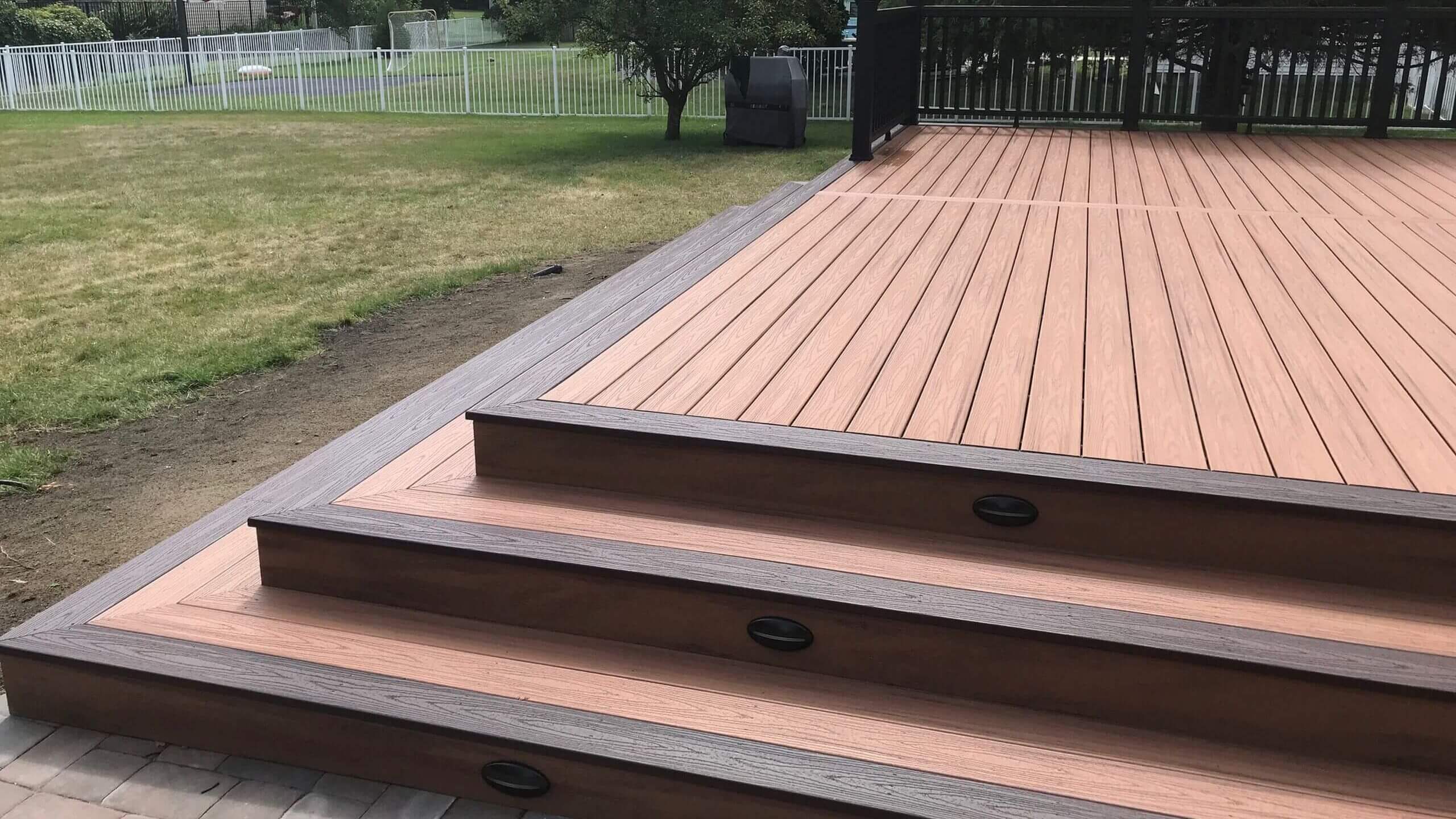Introduction
A custom deck can transform your Cape Cod home—creating an ideal space for relaxing, entertaining, and enjoying the coastal charm of New England. However, building a deck here involves more than just picking out wood and calling a contractor. From permits to materials to environmental regulations, here’s everything you need to know before you start.
We at PLJ are the leaders in carpentry services in Cape Cod, MA,and specialists in decking services.

Click here and get a free quote for your decking project with PLJ Carpentry
1. Understand Local Building Codes and Permits
Cape Cod consists of several towns, each with its own building departments and zoning regulations. Before any construction begins:
- Check with your town’s building department (e.g., Barnstable, Falmouth, or Provincetown) for specific requirements.
- Obtain a building permit. Most decks, especially those over 30 inches high, require permits.
- Consider setback rules, height restrictions, and lot coverage.
- If your property is in a historic district, you’ll likely need approval from a historical commission
2. Choose the Right Materials for the Coastal Climate
Cape Cod’s salty air, high humidity, and winter storms can be hard on building materials. You’ll want something durable and weather-resistant.
Popular Materials:
- Pressure-treated wood – Budget-friendly but requires regular maintenance.
- Composite decking (like Trex or TimberTech) – Low maintenance, rot-resistant, and available in many colors.
- Cedar or redwood – Naturally resistant to insects and rot, but pricier.
- PVC decking – Highly resistant to moisture and ideal for coastal climates.
3. Think About Design and Functionality
Your deck should suit your lifestyle, property size, and view. Ask yourself:
- Do you want a wraparound deck, a raised deck, or a multi-level design?
- Will it be used for entertaining, dining, or sunbathing?
- Should it include built-in seating, planters, or shade structures like pergolas?
4. Environmental and Conservation Considerations
Cape Cod is home to sensitive ecosystems—wetlands, dunes, and protected wildlife habitats. If your property is near any of these areas:
- You may need review and approval from your local Conservation Commission.
- Wetland buffer zones and flood zones can significantly impact your deck’s design and placement.
- Use environmentally friendly materials to reduce impact on natural surroundings.
5. Timing and Seasonality
The best time to build a deck in Cape Cod is late spring through early fall, when weather conditions are favorable and demand for contractors is steady.
- Plan ahead. Permitting and contractor availability can delay your timeline.
- If you want to use your deck in the summer, start planning in winter or early spring.
6. Budgeting and Hiring a Contractor
Costs can vary depending on materials, size, and complexity. In Cape Cod, expect to pay:
- $30–$60 per square foot for basic wood decks
- $60–$100+ per square foot for composite or premium designs
7. Maintenance and Long-Term Care
Even the best deck needs upkeep, especially in Cape Cod’s coastal environment:
- Clean your deck at least once a year.
- Re-stain or seal wood decks every 1–2 years.
- Inspect for loose boards, rusted fasteners, and signs of mildew
Conclusion
A custom deck in Cape Cod is a beautiful investment that adds value, comfort, and outdoor living space to your home. By understanding local rules, choosing the right materials, and planning thoughtfully, you can enjoy a safe, stylish deck that withstands the test of time—and the Cape’s coastal weather.

